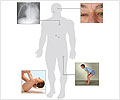Treatment
A well-planned diet, restriction of activities and drugs to prevent and treat symptoms and complications constitute the treatment of Von Gierke Disease.
Diet
The primary goal of treatment of Von Gierke Disease is to avoid low blood sugar. Diet is the mainstay of treatment and requires close monitoring and adjustment by a highly specialized nutritionist. Excessive carbohydrates and calories are to be avoided while adequate calories and protein for growth are ensured.
Overnight feeding with special tubes called nasogastric tubes are given. In children older than 2-3 years, this is usually replaced by raw cornstarch at bedtime and early morning hours.
Activity
Activity restrictions differ based on the condition of the patient. Contact sports are usually avoided due to increased risk of infection and bleeding. There is also potential for liver damage. All other physical activities up to individual limits are encouraged.
Medications
There are no specific medical requirements for Von Gierke Disease type 1a. Recurrent infections require antibiotics. Oral iron supplements are given. Type 1b disease requires weekly administration of granulocyte colony–stimulating factor (GCSF). GCSF boosts the production of blood cells (GSD1 leads to significant fall in protective blood cells like neutrophils) that prevent or reduce infections. Dietary supplements of multivitamins, calcium, and Vitamin D are often required. A drug called allopurinol may be required to reduce elevated uric acid levels. Drugs belonging to the categories of statins and fibric acids are used when cholesterol levels are high. Drugs called angiotensin-converting enzyme (ACE) inhibitors are beneficial in preventing kidney dysfunction. ACE inhibitors treat microalbuminuria, a condition that heralds kidney dysfunction. Citrate supplementation may help prevent deposition of calcium in the kidney. It may also prevent the development of kidney stones.
Surgical care
Surgery is generally not required after initial diagnosis using liver biopsy. Skin infections need prompt management since untreated cases may spread deeper necessitating surgical debridement and plastic surgery. Liver transplantation have been attempted in certain cases of hepatic adenomas.







